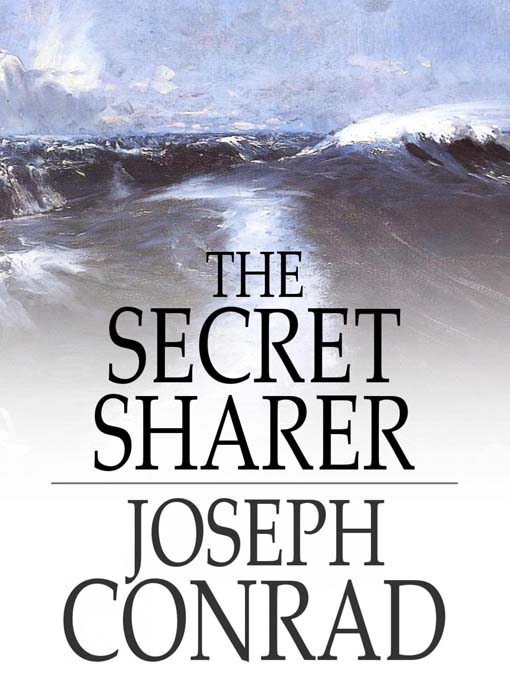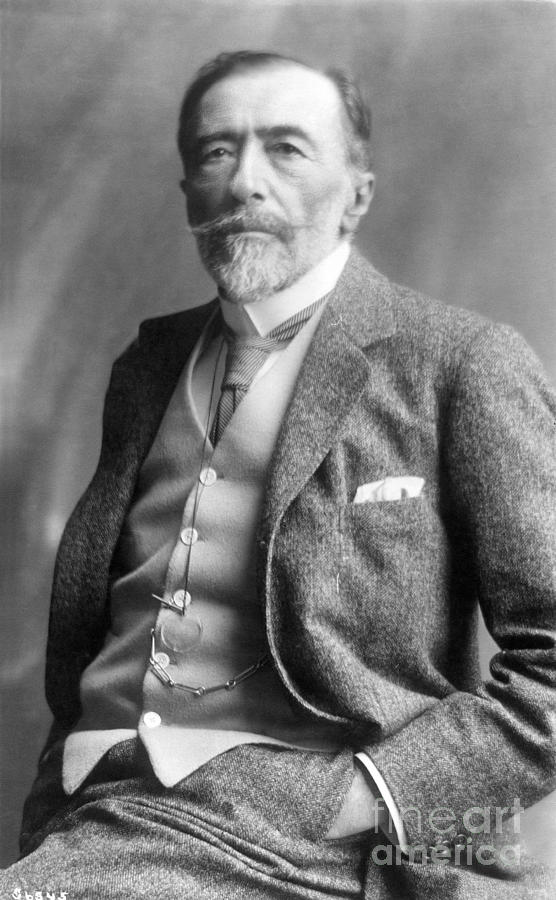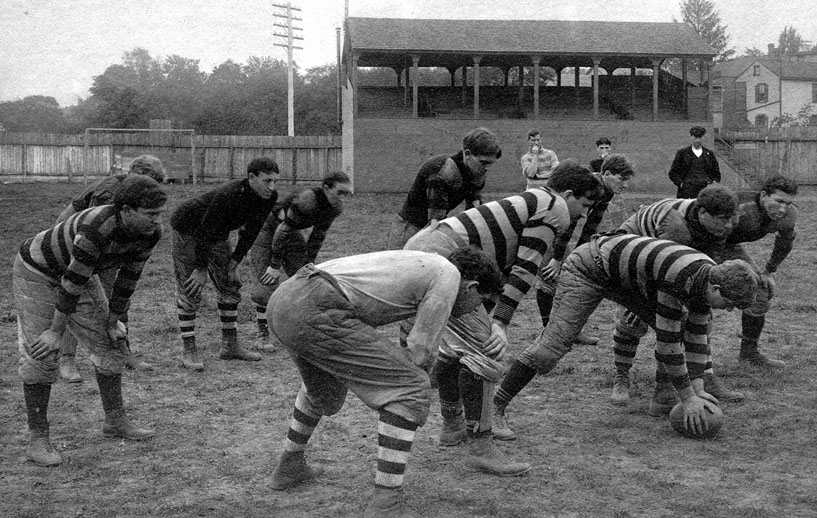Joseph Conrad’s “The Secret Sharer” is usually grouped with his other sea stories for critical consideration, but the nautical setting is incidental—it is the “conflict within” that fascinated the Polish-English writer, a reflection, we can conjecture, of Conrad’s own identification as a homo duplex—a “double man.”

English was Conrad’s second language, and he acknowledged his own dual loyalties when he told a British friend in 1903: “Both at sea and on land, my point of view is English, from which the conclusion should not be drawn that I have become an Englishman. That is not the case. Homo duplex has in my case more than one meaning.”
The immigrant Conrad struggled with this dual national identity, balancing two cultures and allegiances, knowing that he would always be considered somewhat less than truly English. Conrad understood full well the potential for alienation and conflict that such a straddling act could produce.
“The Secret Sharer,” published in 1911 in Harper’s Magazine, was, according to Conrad, based on both his own experiences as a young captain and on the highly publicized murder of a sailor on the clipper ship Cutty Sark in 1880 by the first mate (who subsequently killed himself).
Not much occurs in the “The Secret Sharer”per se: there are no shipwrecks or mutinies, no sea battles or feats of seamanship. The drama, for the most part, takes place in the mind (and heart) of the unnamed young English captain—the narrator—who has recently assumed command, his first, of an unnamed ship off the coast of Cambodia in the Gulf of Siam (Thailand).
As the story opens, another young Englishman, Lassatt, swims to the ship, a fugitive from justice. An officer aboard the ship Sephora, Lassatt has killed a sailor during a crisis in bad weather; he openly explains his situation and acknowledges his guilt in the matter to the captain. Like the story’s narrator, Lassatt has been schooled on the Conway—the training vessel for the Royal Navy and British Merchant Marine—and the young captain immediately identifies with him.
He decides to shelter Lassatt, hiding him in his cabin, concealing his presence from the crew. It’s never made clear why he identifies with the fugitive so deeply: is it the bond between two sensitive men of the same social class? Is there an element of sexual attraction? Is Lassatt his doppelganger, his double?
Conrad’s unnamed narrator struggles with this, drawn to the fugitive, and yet aware of the twisted aspects to the relationship.
He was not a bit like me, really; yet, as we stood leaning over my bed place, whispering side by side, with our dark heads together and our backs to the door, anybody bold enough to open it stealthily would have been treated to the uncanny sight of a double captain busy talking in whispers with his other self.
“The Secret Sharer” is about duality (the text is crammed with references to “my other self,” “my double, “the secret sharer of my life,” “my intelligent double”), a common theme in 19th century literature: think of Stevenson’s Dr. Jekyll and Mr. Hyde, Poe’s William Wilson, Melville’s “Bartleby the Scrivener.” In fact, Conrad revised the title of the story from “The Secret-Sharer” to “The Secret Sharer” so that dualism was recognized from the start.
The question of command
While the Other Self fascinates Conrad, the story is also about command—command in the sense of commanding a ship, but also of commanding one’s destiny. One critical interpretation of the story sees the episode with Leggatt as the mechanism by which the young captain faces down his self-doubts and assumes his responsibilities as the authority figure on his own ship. Certainly the resolution of the story suggests that Conrad introduced the fugitive as a way to force his young narrator to confront the very question of command. It is an unabashedly male question for Conrad: does the captain have the strength and resolve to deserve command? Can he gain the respect of his crew—who wait to see that his titular authority is matched by competence and judgment?

Where Conrad’s work rises above the conventional sea story is in his portrait of his hesitant, conflicted captain. The narrator confesses: “But what I felt most was my being a stranger to the ship; and if all the truth must be told, I was somewhat of a stranger to myself.” He doubts himself: “…I wondered how far I should turn out faithful to that ideal conception of one’s own personality every man sets up for himself secretly.”
In contrast to this hesitancy, C.S. Forester’s Horatio Hornblower or Patrick O’Brian’s Jack Aubrey—perhaps the two best-known protagonists in 20th century nautical fiction—rarely if ever suffer from self-doubt or second thoughts: they are “men of action” and natural leaders, cool and collected in times of crisis.
It is now clear that neither Forester (the pen name of Cecil Louis Troughton Smith) nor O’Brian (named Richard Patrick Russ at birth) were the naval experts they made themselves out to be; both fashioned public biographies that veered sharply from the truth. Indeed, Patrick O’Brian, who was neither Irish nor a retired naval officer as assumed by many readers, apparently had limited hands-on sailing skills! It is a testament to his skills as a researcher, and his imaginative powers, that he could produce the Aubrey–Maturin series. Perhaps Conrad’s stint as a sea captain freed him to explore the ambiguity of command in ways that Forester and O’Brian—concerned about “authenticity”— could not.
By the close of “The Secret Sharer,” Conrad’s young captain embraces his command, just as he bids farewell to “the secret sharer of my life.” He confronts this alone, having faced down his prior doubts (made human in the form of Lassatt?), and he now turns eagerly to this new responsibility. “Nothing! no one in the world should stand now between us, throwing a shadow on the way of silent knowledge and mute affection, the perfect communion of a seaman with his first command.”
The Amazon.com link for the reviewed story:
Joseph Conrad: “The Secret Sharer” and Other Stories
©2006, 2015 by Jefferson Flanders





